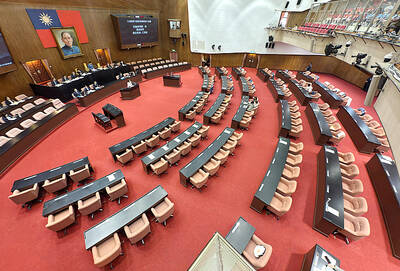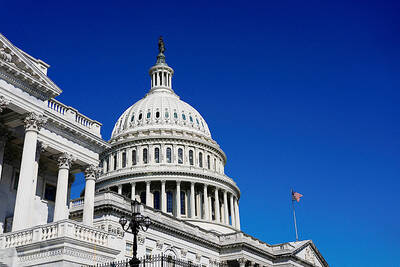China stopped giving import permits for soybean oil from Argentina as a trade rift between the two nations widened, four executives familiar with the matter said.
The Ministry of Commerce’s computer system for processing permit applications is not functioning and the ministry did not say when it would be operational, said the people, who declined to be named because they are not authorized to speak publicly.
China is the world’s biggest soybean oil buyer.
The central government assumed full control for Argentine soybean oil imports from the provinces on April 1.
The move was in response to Argentina’s anti-dumping investigations on Chinese goods ranging from steel pipes to textiles, a Chinese state-backed trade group said.
An Argentine delegation visiting Beijing this week failed to reach agreement on the matter as China’s government said the import issues are related to oil quality, the people said. China is likely to maintain its curbs in the near term, the executives said.
The government is not restricting Argentine soybean oil imports and the decision to centralize import permit management is to further monitor Argentine oil, a press official at the commerce ministry, who asked not to be named, said in a telephone interview on Saturday.
A separate official at the ministry denied the government had stopped accepting import permit applications in an interview in Beijing yesterday. He said to his knowledge the online system is still working and China’s general position on Argentine soy hasn’t changed, while declining to be identified.
The Argentine embassy was closed and unable to be contacted by phone.
A state-owned company canceled one Argentine cargo this week, weighing about 10,000 tonnes, one of the executives said. Two were redirected to other countries because buyers were concerned they would be rejected when they arrived in China, he said.
Two shipments are expected to arrive in China this month after they departed Argentina before the announcement on March 31 and traders are waiting to see how these cargoes are handled by the authorities, the people said.
Traders will have to rework contracts that have already been signed with Argentine suppliers, one executive said.
Argentina is China’s biggest supplier of soybean oil and China is the Latin American nation’s biggest buyer.
The government of Argentina collected US$600 million in export taxes on the cooking oil sold to China, two of the people said.

The Chien Feng IV (勁蜂, Mighty Hornet) loitering munition is on track to enter flight tests next month in connection with potential adoption by Taiwanese and US armed forces, a government source said yesterday. The kamikaze drone, which boasts a range of 1,000km, debuted at the Taipei Aerospace and Defense Technology Exhibition in September, the official said on condition of anonymity. The Chungshan Institute of Science and Technology and US-based Kratos Defense jointly developed the platform by leveraging the engine and airframe of the latter’s MQM-178 Firejet target drone, they said. The uncrewed aerial vehicle is designed to utilize an artificial intelligence computer

The Chinese Nationalist Party (KMT) caucus yesterday decided to shelve proposed legislation that would give elected officials full control over their stipends, saying it would wait for a consensus to be reached before acting. KMT Legislator Chen Yu-jen (陳玉珍) last week proposed amendments to the Organic Act of the Legislative Yuan (立法院組織法) and the Regulations on Allowances for Elected Representatives and Subsidies for Village Chiefs (地方民意代表費用支給及村里長事務補助費補助條例), which would give legislators and councilors the freedom to use their allowances without providing invoices for reimbursement. The proposal immediately drew criticism, amid reports that several legislators face possible charges of embezzling fees intended to pay

REQUIREMENTS: The US defense secretary must submit a Taiwan security assistance road map and an appraisal of Washington’s ability to respond to Indo-Pacific conflict The US Congress has released a new draft of the National Defense Authorization Act (NDAA), which includes up to US$1 billion in funding for Taiwan-related security cooperation next year. The version published on Sunday by US House of Representatives Speaker Mike Johnson removed earlier language that would have invited Taiwan to participate in the US-led Rim of the Pacific Exercise (RIMPAC). A statement on Johnson’s Web page said the NDAA “enhances U.S. defense initiatives in the Indo-Pacific to bolster Taiwan’s defense and support Indo-Pacific allies.” The bill would require the US secretary of defense to “enable fielding of uncrewed and anti-uncrewed systems capabilities”

Renewed border fighting between Thailand and Cambodia showed no signs of abating yesterday, leaving hundreds of thousands of displaced people in both countries living in strained conditions as more flooded into temporary shelters. Reporters on the Thai side of the border heard sounds of outgoing, indirect fire yesterday. About 400,000 people have been evacuated from affected areas in Thailand and about 700 schools closed while fighting was ongoing in four border provinces, said Thai Rear Admiral Surasant Kongsiri, a spokesman for the military. Cambodia evacuated more than 127,000 villagers and closed hundreds of schools, the Thai Ministry of Defense said. Thailand’s military announced that